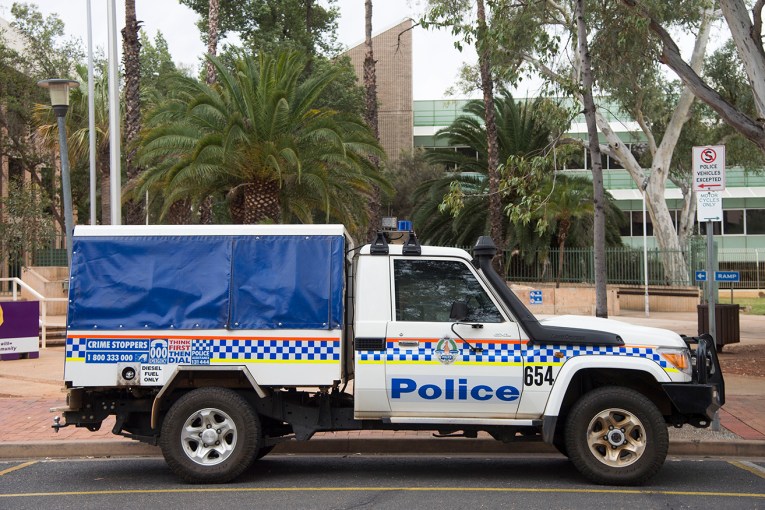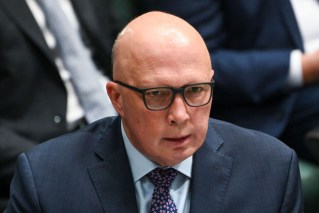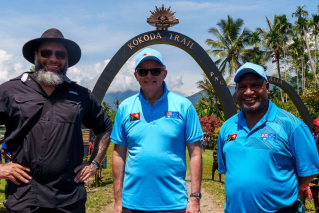Voice an important new chapter for Australia: Dreyfus

Attorney-General Mark Dreyfus has been given a standing ovation after presenting the words to alter the Australian constitution to enshrine an Indigenous voice to federal Parliament.
Mr Dreyfus introduced the bill on Thursday, in the first formal step towards this year’s referendum – the first for Australians in more than 20 years.
He said the alteration would rectify more than 120 years of the explicit exclusion of Aboriginal and Torres Strait Islander peoples in Australia’s founding legal document.
“Recognition through a voice is neither the beginning nor the end of this story, but it is an important new chapter,” he told parliament.
“It is now 2023. It is time to accept the generous invitation in the Uluru Statement from the Heart. It is time to listen.”
The government benches in the House of Representatives were full for Mr Dreyfus’s speech. But only about a dozen Coalition MPs were there – Opposition Leader Peter Dutton was among those who were absent.
Most crossbench MPs were also present. They included former Nationals MP Andrew Gee, who quit the party over its decision to oppose the Voice.
Mr Dutton is yet to reveal the Liberal Party’s formal position on the referendum.
Parliament finalised the rules around the distribution of referendum information and political donations last week, modernising laws that were last used for the republic vote in 1999.
While introducing the bill, Mr Dreyfus invoked significant historical moments for Indigenous people, including the 1967 referendum, the 1992 High Court Mabo decision and the 2008 apology to the stolen generation.
But he said despite efforts of successive governments, efforts to close the gap between Indigenous and non-Indigenous Australians had not been successful.
“It is time for a different approach, it is a time to open a new chapter, it is time to listen,” he said.
“This is an important reform, but it is modest. It complements the existing structures of Australia’s democratic system and enhances the normal functioning of government and the law.”
The constitutional change will involve adding three clauses saying:
“There shall be a body, to be called the Aboriginal and Torres Strait Islander Voice;
“The Aboriginal and Torres Strait Islander Voice may make representations to parliament and the executive government of the Commonwealth on matters relating to Aboriginal and Torres Strait Islander peoples;
“The parliament shall, subject to this constitution, have power to make laws with respect to matters relating to the Aboriginal and Torres Strait Islander Voice, including its composition, functions, powers and procedures.”
Constitutional law expert Anne Twomey said the wording of the constitution should ease concerns from critics that the Voice would be able to advise on other matters, such as interest rates or defence policy.
“If the Voice did make representations on a wide variety of things that had very little relationship with Aboriginal and Torres Strait Islander people, then the government is perfectly entitled to completely ignore them,” she told ABC Radio.
Mr Dreyfus said nothing in the provision would impact the ordinary functioning of Australia’s democratic system, but rather it would enhance democracy.
“While the constitutional nature of the body and its expertise in matters relating to Aboriginal and Torres Strait Islander peoples would give weight to the representations of the voice, those representations would be advisory in nature,” he said.
“It will be a matter for the parliament to determine whether the executive government is under any obligation in relation to representations made by the voice.”
-with AAP









